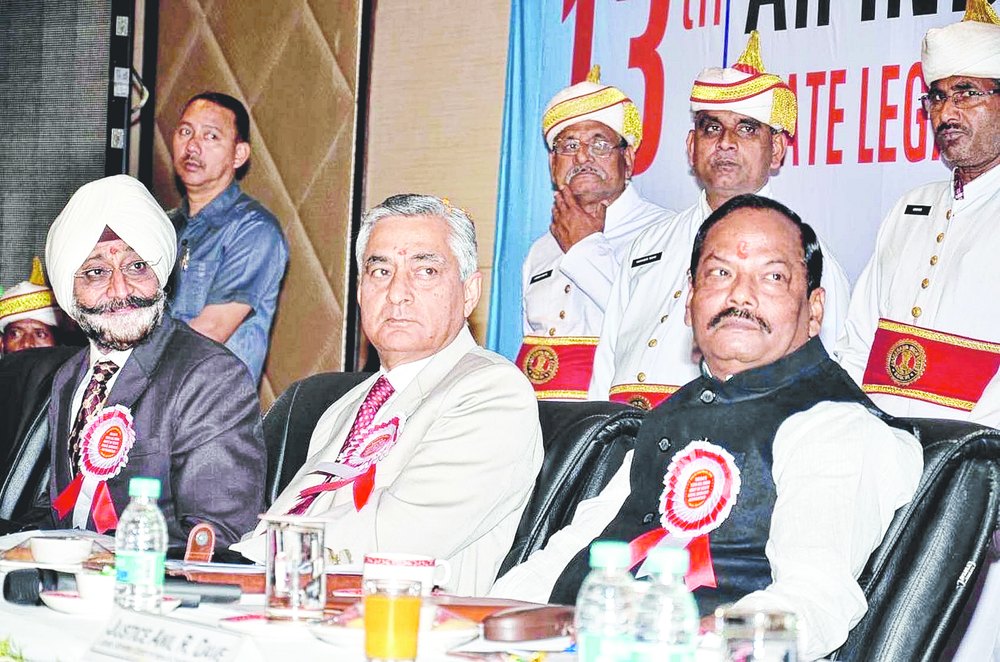

Ranchi, March 21: Chief minister Raghubar Das today said Khunti district court would soon be turned into a green building, making it the first official structure in the country to be powered by solar energy.
"The Khunti district court is expected to run on solar energy in the next couple of months and will be a model for all other official buildings in the state," Das said.
The chief minister was speaking at the 13th All India Meet of State Services Authorities, organised by Jharkhand Legal Services Authorities (JHALSA) under the aegis of National Legal Services Authority (NALSA), in Ranchi.
"After considering the viability of the project, the government will install solar panels in thanas and collectorate offices also," Das said at the function, where seven new e-courts - two each in Jamshedpur, Bokaro and Dhanbad and one in Ranchi - were inaugurated online to speed up the rate of disposal of cases.
So far, the state's lone e-court was situated in Ranchi.
In Dhanbad, principal district and sessions judge Ambuj Nath did the honour manually at the newly constructed e-trial room while principal district and sessions judge A.V. Singh, among others, attended the official function of the new facility on the ground floor of Jamshedpur civil court.
LCD screens for video-conferencing, eagle-eye video cameras and other equipment have been installed in all the new e-courts. Further, the e-courts will be connected with all courts and jails situated across Jharkhand through State Wide Area Network of Jharnet.
In Ranchi, Jharkhand High Court Chief Justice Virender Singh, Justice D.N. Patel and Supreme Court Justice T.S. Thakur, among others, were present at the inaugural session of the two-day JHALSA seminar today.
As many as 36 judges of various high courts from across the country and two Supreme Court judges are participating in the meet.
Justice Thakur, who is also NALSA executive chairperson, said justice was a fundamental right and stressed on the need for ensuring accessibility to justice.
"Jharkhand has a high tribal population, who mainly live off land and forest. For some reason or the other, they feel they have not been given their due share of justice, which has led them to rebel against the system," Thakur pointed out.
Speaking on the occasion, Jharkhand High Court Chief Justice Singh said the court, in tandem with Jhalsa, had been working on various issues involving public interest.
"One such example is ensuring construction of toilets in government schools for girls," the judge added.
Jhalsa executive chairman Justice Patel said that as many as 400 legal aid clinics had been opened across the state to provide assistance and create awareness.











